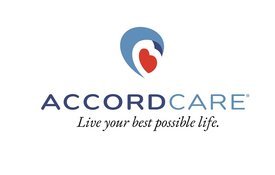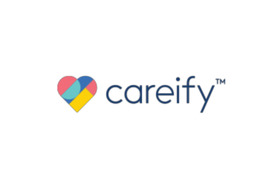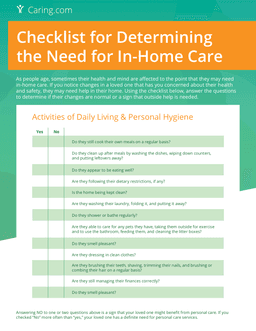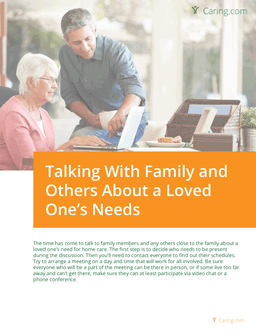
3739 National Dr suite 150 , Raleigh, NC, 27612
Pricing not available
Caring.com offers a free service to help families find senior care and authentic reviews to help you in...

3739 National Dr suite 150 , Raleigh, NC, 27612
Pricing not available

142 Towerview CT, suite 231, Cary, NC, 27513
Pricing not available

4819 Emperor Blvd, Durham, NC, 27703
Pricing not available

1612 Homestead Rd, Rocky Mount, NC, 27804
Pricing not available

1743 South Main St, Suite 201 , Wake Forest, NC, 27587
Pricing not available

2307 W Cone Blvd suite 110-A , Greensboro, NC, 27408
Pricing not available
Caring's Family Advisors are here to help you with questions about senior living and care options.

9121 Anson Way Suite 200 , Raleigh, NC, 27615
Pricing not available

7048 Knightdale Blvd Ste 220C, Knightdale, NC, 27545
Pricing not available

121 Nash St , Wilson, NC, 27893
Pricing not available
According to the 2020 Genworth Cost of Care Survey, Knightdale’s home care monthly rates of around $4,004 are well below the national median of $4,481. However, the city’s costs are above the state average of $3,813.
Knightdale is significantly more expensive for home care than most of the surrounding cities. Providers in Fayetteville ($3,623), Goldsboro ($3,449) and Rocky Mount ($3,432) charge at least $300 less. The city is more affordable for this type of care than Durham, where rates are $381 higher.
Knightdale
$4,004
North Carolina
$3,813
United States
$4,481
Durham
$4,385
Fayetteville
$3,623
Goldsboro
$3,449
Rocky Mount
$3,432
In Knightdale, home care is one of the most convenient and affordable ways for seniors to receive the help they need. The only type of care costing less in the area is adult day health care at an average of $1,463. Home health care agencies charge $191 more than home care providers. Assisted living communities are substantially more expensive than home care, while nursing homes are nearly double the cost.
Home Care
$4,004
Home Health Care
$4,195
Adult Day Health
$1,463
Assisted Living
$4,800
Nursing Home Care (semi-private room)
$7,148
Given the high cost of in-home care, many people use one or more forms of financial assistance to cover the expenses. Below, we explain some of the most common sources of financial help for paying for in-home care. If none of these options are available to you, you can reach out to your Area Agency on Aging or Aging and Disability Resource Center to learn about local resources.
Long-Term Care Insurance: Long-Term Care Insurance covers expenses related to senior care, including in-home care. Depending on the policy type, beneficiaries may receive a cash payment to use towards long-term care or reimbursement for qualifying long-term care expenses. Note that there are limitations- typically a maximum benefit of $150 per day- and exact coverage terms vary depending on the exact policy, so always check the details.
Medicare: Medicare does not cover in-home care because it is classified as custodial, or non-medical, care. However, some Medicare Advantage and Medicare Supplement plans, which offer expanded benefits, may cover in-home custodial care.
Medicaid: Medicaid coverage of in-home care varies between different states because it is not a federally mandated benefit. Currently, all states cover some in-home care either through their standard Medicaid or a waiver program. The specific coverage rules are set individually by each state.
Veterans’ Benefits: The Aid and Attendance benefit is a monthly cash payment that beneficiaries can use to pay for senior care, including in-home care services. To qualify for A&A, Veterans must already receive the VA pension and meet several additional requirements, including needing assistance with the activities of daily living.Contact the Department of Veterans Affairs to learn more.
Reverse Mortgages: Home Equity Conversion Mortgages (HECMs) are federally insured loans that are available to homeowners age 62 and over. Reverse mortgages allow you to access a portion of your home’s equity in cash, tax free. Many seniors use reverse mortgages to finance their care expenses, including in-home care. Note that although there are no monthly payments due on reverse mortgage loans, borrowers do have to repay the loan once the last surviving homeowner passes away, moves, or sells the home.
There are several resources available to seniors in Knightdale that can help them continue to live at home for as long as possible. These resources can assist with home repairs and other areas relevant to older adults in the town.
| Resource | Contact | Service |
|---|---|---|
| Home Modification and Repair Services | (919) 872-7933 | This is a program overseen by the Resources for Aging agency and can help seniors fund a series of home repairs. Older adults may be eligible for assistance with paying for home improvements such as installing a wheelchair ramp, fixing their plumbing and more. These services are offered by local constructors and volunteers and the cost is on a sliding scale based on income. Seniors must be 55 and older to qualify. |
| Wake County’s Special Assistance / In-Home Program | (919) 250-3835 | This statewide program is managed locally by the Wake County government. Seniors who are at risk of being placed in a nursing home can receive free home care in the community. Social workers with the county can assess applicants and decide which care levels they receive. Seniors have to be on a low income that's under the federal poverty line and must be age 65 or over. |
| Weatherization Program | (919) 713-1570 | Seniors whose income is below double the Federal Poverty Level can get home repairs to help reduce their energy bills. This program is a Senior Resources-operated initiative that can help seniors insulate their homes, fix air leaks, install a smart thermostat and other improvements. |
| Seniors Transportation Programs | (919) 713-1527 | There are two transportation programs available to seniors in Knightdale offered by Senior Resources. Older adults can get rides to and from medical appointments. They can also be transported to local senior centers for congregate meals. These programs are free to older adults in Wake County who are 65 and over. |
| Senior Legal Helpline | (877) 579-7562 | The statewide legal helpline can help adults aged 60 and over get advice on civil matters. Seniors can contact the helpline for assistance on topics such as powers of attorney, public benefits and housing issues. |
Aging can be a difficult process, and loved ones may not always ask for help – oftentimes it’s up to their family to evaluate their need for help around the house. While no two situations are exactly alike, this checklist can help you and your loved ones determine when it’s time to start the search for a home care provider.


If you’ve determined that your loved one needs the assistance of a care provider in their home, it may be time for a difficult conversation. Handled correctly, however, this process can bring a family together and ensure that everyone’s concerns are addressed. Use this PDF as a starting point to help the conversation stay as positive and productive as possible.

